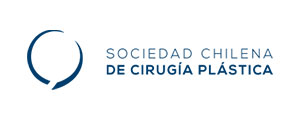VOLTAR
IMCAS Americas 2025
IMCAS Americas 2025
Programa
020, 021
Segurança anatômica: abdômen, músculos, enxerto de gordura (em colaboração com a SCCP)
Sala: Room 3
Data: sexta-feira 11 abril 2025 de 16:30 às 18:30
Formato: FOCUS SESSION > lectures covering a major topic of the congress
Data: sexta-feira 11 abril 2025 de 16:30 às 18:30
Formato: FOCUS SESSION > lectures covering a major topic of the congress
Apresentações desta sessão
| Horas | Palestrantes | Título da apresentação | Resumo | Número |
| 16:30 | Cadáver: abdômen e músculos | 143766 | ||
| 16:45 | Esculpindo a essência: anatomia por ultrassonografia em demonstração ao vivo | 148236 | ||
| 16:45 | Comentarista | 148011 | ||
| 16:45 | Comentarista | 148242 | ||
| 16:45 | Comentarista | 143771 | ||
| 17:00 | Estrutura corporal: redefinindo a forma feminina | 143767 | ||
| 17:10 | Discussão | 143769 | ||
| 17:20 | Plicatura do escudo anatômico | 143770 | ||
| 17:32 | Perfil genético em intervenções para perda de peso: avançando soluções personalizadas para resultados de saúde e estéticos | Visualizar | 143772 | |
| 17:44 | Técnica M.I.R.E.L.A (lipoabdominoplastia endoscópica robótica minimamente invasiva) no tratamento estético de contorno corporal | Visualizar | 143773 | |
| 17:56 | Técnica de mini-abdominoplastia | 148243 | ||
| 18:08 | Sessão de perguntas e respostas | 143774 | ||
















